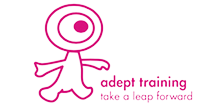
Courses for beginners
There is 1 course available in Central Coast New South Wales for beginner learners with no prior experience or qualifications.
Certificate III in Health Services Assistance
- There are no mandated entry requirements.


Courses for experienced learners
There are 2 courses available in Central Coast New South Wales for experienced learners with prior experience or qualifications.
Certificate IV in Allied Health Assistance
- There are no mandated entry requirements.
 Foundation Education
Foundation Education
Certificate IV in Medical Practice Assisting
- There are no mandated entry requirements.
 Adept Training
Adept Training
Key questions
How can I become a biomedical engineer?
To become a biomedical engineer in Central Coast, you may want to consider completing the Certificate IV in Allied Health Assistance. This qualification will equip you with the skills and knowledge necessary for a career in this industry.
Are there training providers in Central Coast?
You can train to become a biomedical engineer by completing a qualification with Foundation Education. Find a course provider near you. Once you make an enquiry, a course advisor will get in touch to discuss your study options and course fees.
What study modes are available?
There are several campuses within the Central Coast area that provide biomedical engineer training. The closest campus is 31km away from the center of Central Coast. You can also study a biomedical engineer course through online, traineeship learning. Find a course provider that best suits your study needs.
Related occupations
Explore related occupations in the biomedical engineer sector.
Clinical Engineer
A Clinical Engineer ensures the safe operation of medical equipment in healthcare settings by maintaining, installing, and repairing complex devices.
Prosthetist
A Prosthetist designs and fits prosthetic devices for individuals with disabilities or amputations, requiring both technical and interpersonal skills.
Tissue Engineer
Tissue Engineers develop biomaterials and biotechnologies to repair damaged organs and tissues, working on projects like skin grafts and lab-grown tissue.
Pharmaceutical Engineer
Pharmaceutical Engineers design, develop, and produce medications, cosmetics, and vaccines, overseeing quality control, testing, compliance, and product innovation.
Research and Development Engineer
A Research and Development Engineer designs and tests innovative technologies to meet industry needs, collaborating with teams to ensure compliance and performance.
Biomechanical Engineer
Biomechanical Engineers design machines and devices to enhance health, working in areas like prosthetics, robotics, and medical equipment development.
Engineering Technologist
An Engineering Technologist uses engineering principles to solve technical problems, focusing on the practical implementation of designs and ensuring project compliance.
Bioinformatics Engineer
A Bioinformatics Engineer creates software and algorithms to analyse biological data, integrating biology and computer science to support research.
Further reading


Choosing a security licence course in Australia: A step-by-step guide for jobseekers
10th November 2023)
